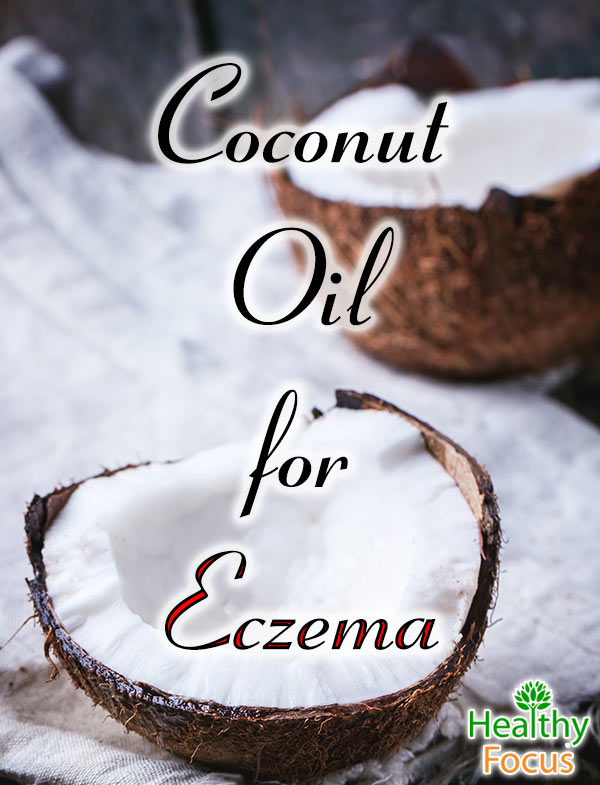
Coconut Oil for Eczema
Pure, Virgin coconut oil is good for your health. Apart from being very tasty, it is packed with essential vitamins and minerals and omega-3 fatty acids and possesses a range of healing health properties.Certain Pacific Island cultures have been getting a huge percentage of their calorific intake from coconuts for thousands of years; they are also among the healthiest populations on the planet. The Western World has begun to take notice and starting to acknowledge the many health benefits of coconut oil which range from hair care to lowering your cholesterol and risk of heart disease.
In recent times, many people including dermatology experts have been recommending the topical use of coconut oil to ease the painful symptoms of eczema. Eczema is the general term used to cover a group of conditions that cause dry, itchy skin and potentially inflammation and irritation. It is a relatively common complaint that affects around 20% of infants in the United States.
Children can develop eczema as young as 6 months of age. Eczema is not contagious and there is no cure but most adults grow out of the condition before their tenth birthday. Nevertheless, a number of sufferers remain affected into adulthood.

Eczema is a difficult condition to treat—closely related to allergies and asthma. Eczema is incurable and doctors are not always certain what causes it in the first place. Doctors generally prescribe some sort of prescription steroid cream which tend not be effective in the long run.
While steroid cream can do the trick short term, in the long run many people note that their symptoms often get worse than they were to start with. The skin and body become desensitized to the steroids as larger and stronger doses are required.
With this in mind, experts and sufferers are looking at alternative natural remedies instead of harsh medicines and steroids. Coconut oil is developing a reputation as a safe, effective and totally natural treatment for the symptoms of eczema as well as other dermatological complaints.
Coconut oil can help eczema and contact dermatitis sufferers to calm the skin. The anti-inflammitory properties help prevent the flare ups and itchiness which characterize the condition.

The study carried out over 8 weeks compared the topical use of virgin coconut oil with the effectiveness of mineral oil on 117 patients. The research revealed a significant reduction in symptoms within the group treated with virgin coconut oil.
46% of the children treated with coconut oil had an excellent response while 46% showed a moderate improvement. Researchers concluded that the virgin coconut oil group achieved significantly better results than those treated with mineral oil.
This is clearly great news for those looking for a safe and natural treatment for their eczema symptoms and probably for those wanting to treat a number of other skin complaints. So why is coconut oil so good for your health in general and so good for your skin in particular?
Why Coconut Oil is Good for Eczema
- Coconut oil is completely natural and free of any of the harmful chemicals present in prescription eczema medication.There is a dazzling range of coconut oil available these days so be sure that you get the best quality oil for your skin. The oil you choose should be unrefined, pure, organic extra virgin coconut oil to ensure the best results.
- Coconut oil contains many of the compounds and properties that make it ideal for treating the skin. In coconut oil we find a number of important vitamins, minerals and nutrients that help to nourish and moisturize the skin. It is a rich source of vitamins K and E as well as healthy acids including lauric and capric acid. Its properties are antibacterial, antimicrobial, antifungal and antioxidant which are key to preventing infection and healing damaged skin.
- The lauric acid contained in coconut oil is a rare type of fatty acid found in mother’s milk which is converted into a compound called monolaurin. When applied topically it actually penetrates the skin, moisturizing it from within and giving you protection against damaging free radicals.
- Coconut oil reduces the inflammation and irritation characteristic of the condition. It helps heal tissue damage and supports immune system function.
- The best news for eczema sufferers might be that it provides very quick relief from itching usually within 5 minutes of being applied.
- The medium-chain fatty acids possessed by coconut oil are easily absorbed through the skin helping it to remain moisturized and soft and further reducing inflammation.
Tips on how to use Virgin Coconut Oil for Eczema?
As we mentioned earlier, it is important to buy the best possible quality coconut oil for your eczema; make sure you look for extra virgin coconut oil so that your skin receives the best results.
For eczema, you can use it in several ways; you can take coconut oil internally, apply it topically or do a combination of both.
1. Topical application
- Simply take a small quantity of virgin coconut oil and directly apply it to the affected area of the skin.
- Repeat the process 2 or 3 times a day.
- Apply it before bedtime and leave it to work on your skin throughout the night.
2. Homemade Lotion with Vitamin E oil
Consider making your own lotion. Coconut oil mixes well with vitamin E oil which is also great for your skin.- Add 2 teaspoons of vitamin E oil to 4 tablespoons of virgin coconut oil
- Coconut oil solidifies at room temperature so make sure that you warm and soften it first.
- Mix the oils together well.
- Apply the finished lotion to the affected area several times a day.
3. Take internally
Taking virgin coconut oil internally provides you with a number of health benefits and help boost immune system function which helps eczema sufferers.- Supplement your diet with between 2 and 5 tablespoons of coconut oil a day.
- You can take it directly or add it to your food.
- Coconut oil makes a great addition to your salad dressing vinaigrette.
4. For children
Children as young as 6 months
of age can be affected by eczema and coconut oil is a great and natural
way to ease their symptoms. Coconut oil is perfectly safe for young
children and can be applied in the same way as you would for adults
except in smaller quantity.
It is important to make sure that your
baby has no allergy to coconut oil before using it and also to only use
unrefined virgin oil.It is very important to get Virgin coconut oil as processed coconut oil is a completely different oil altogether.
Virgin coconut oil is made from the fresh milk and meat while “refined” coconut oil is made from the dried version. The dried version requires bleaching and sanitizing to make sure no toxins form. The dried version has higher oil yields—so that is typically why this method is used.
Source Click here

Comments
Post a Comment